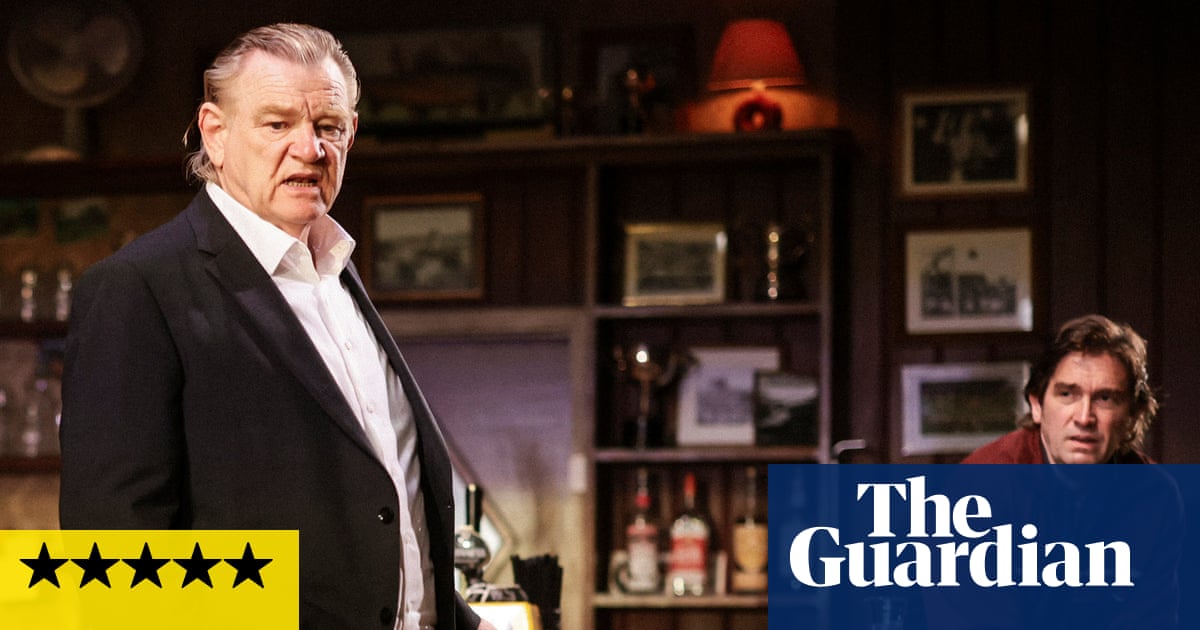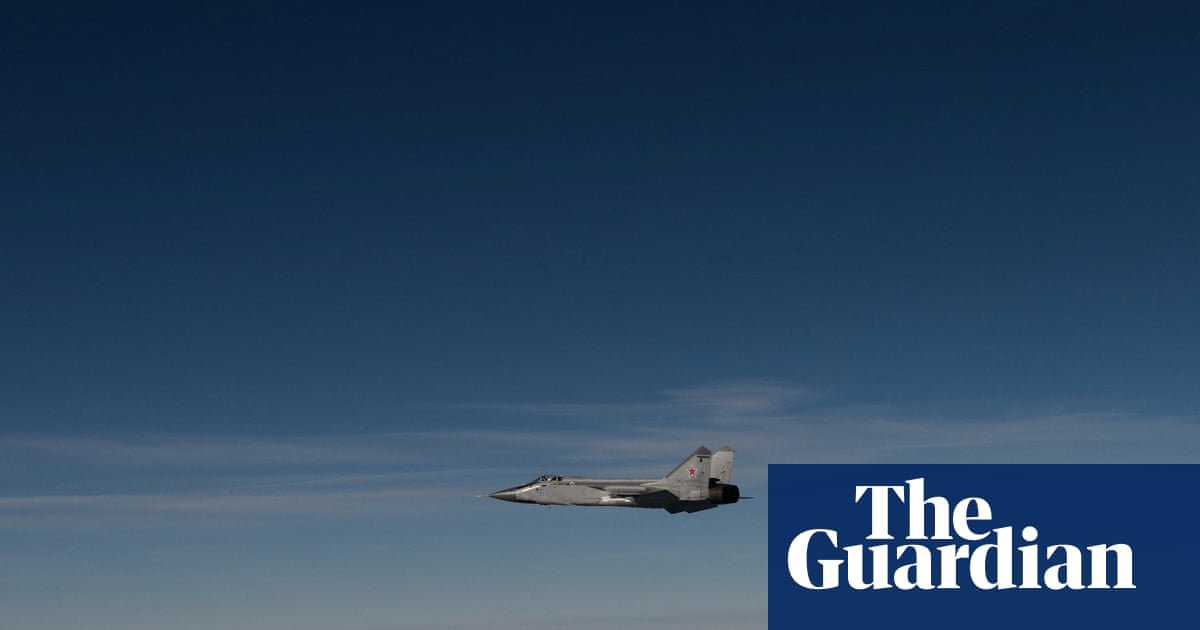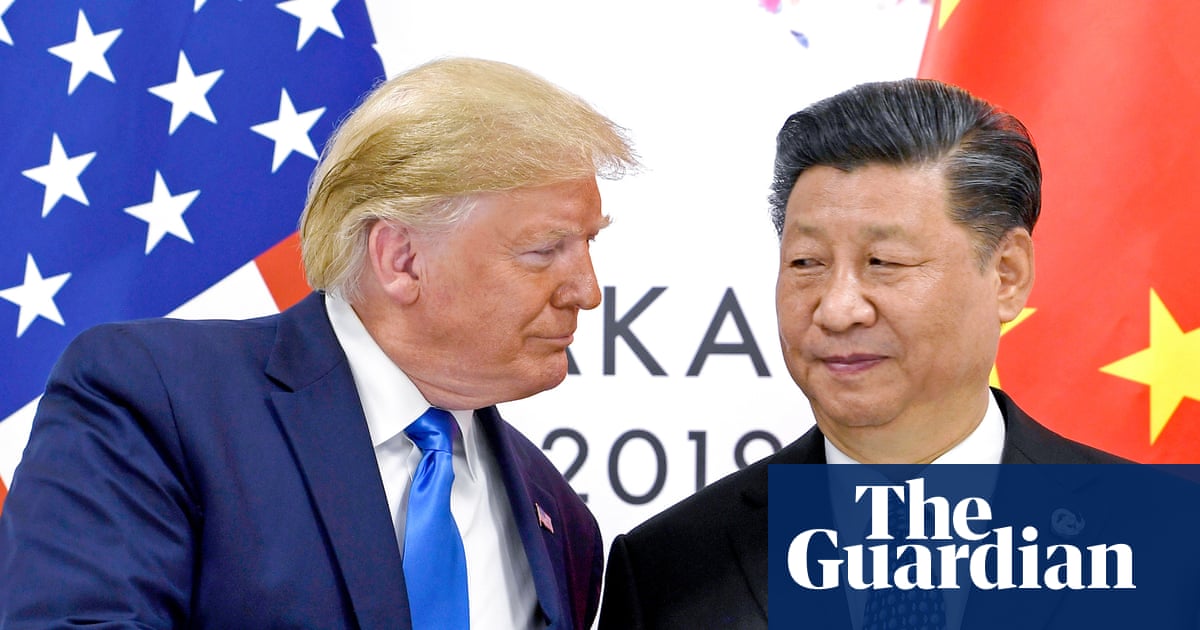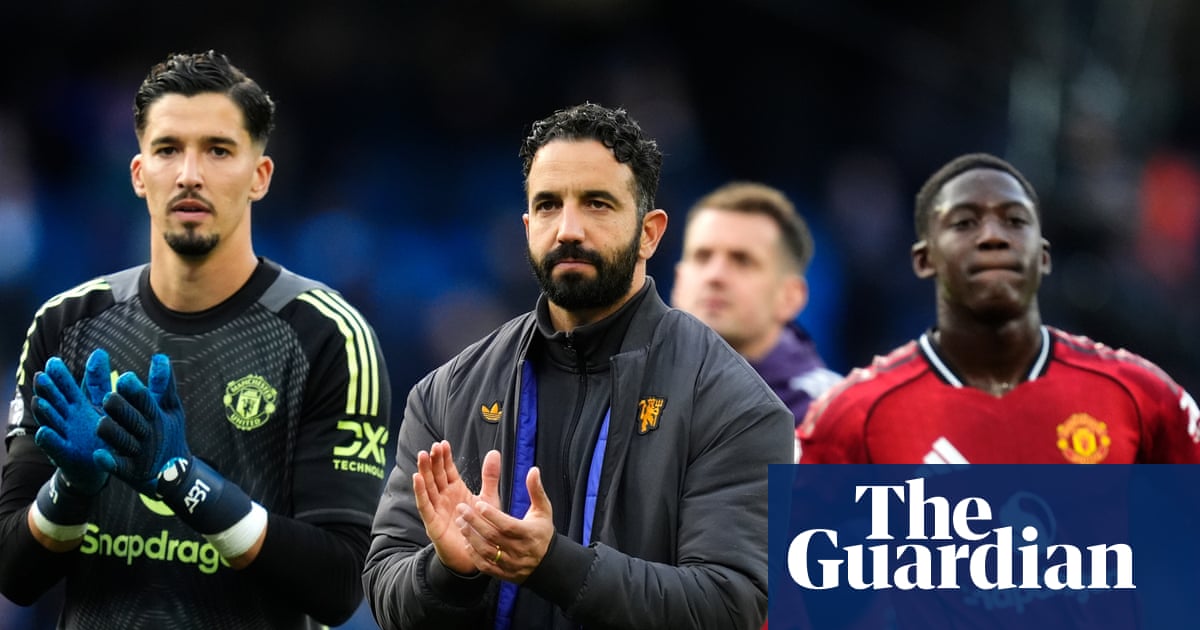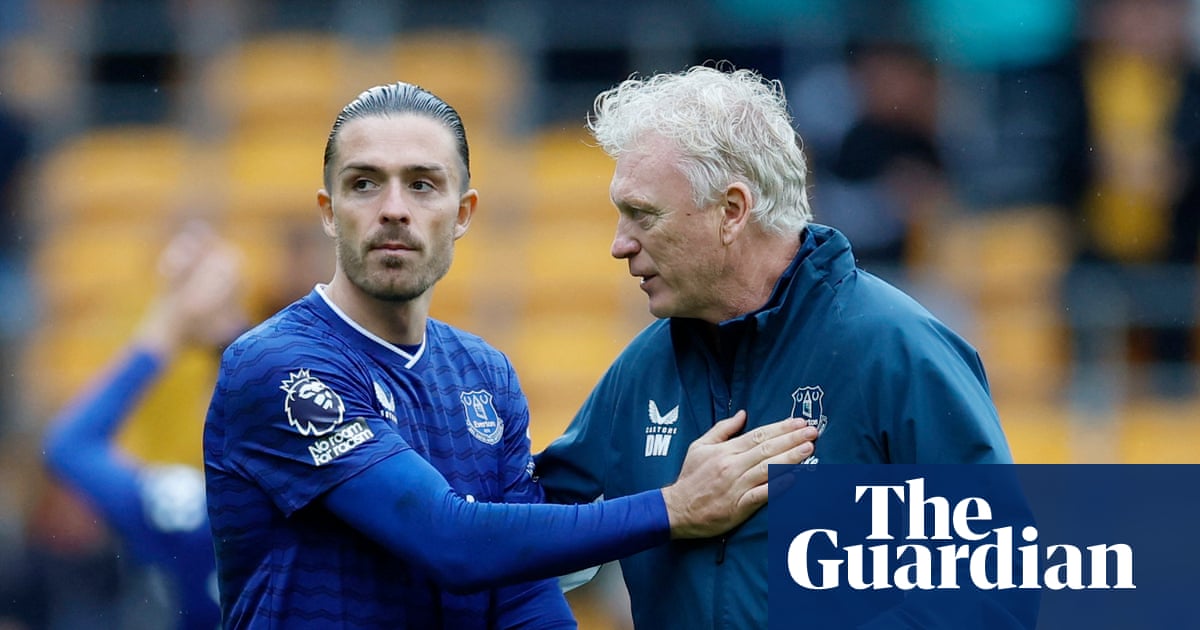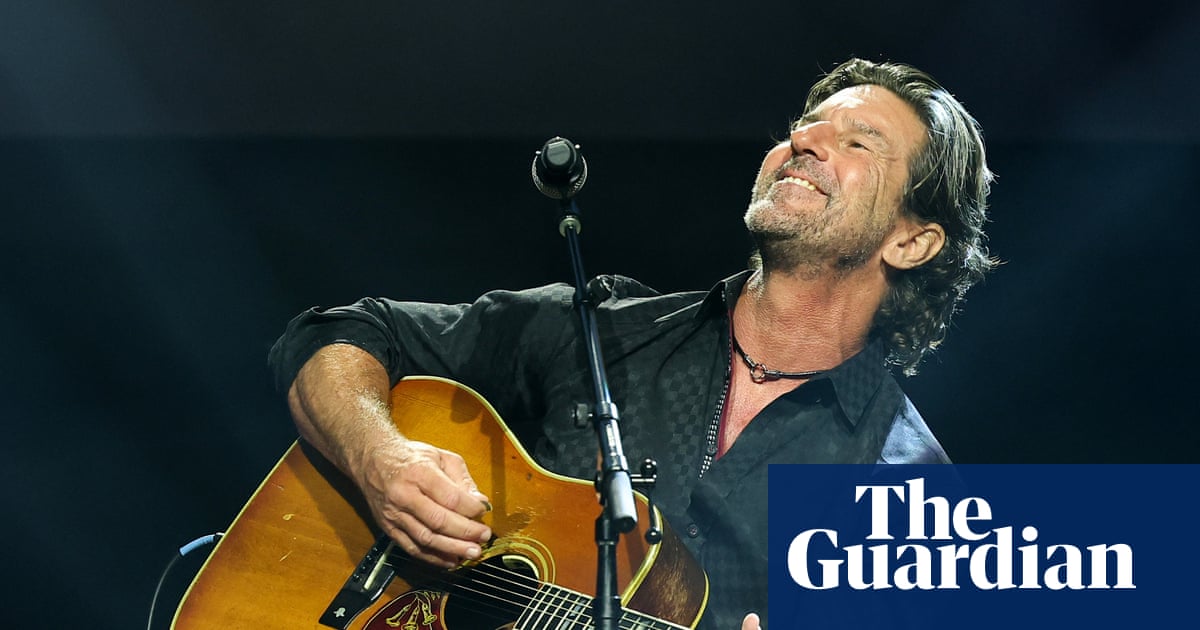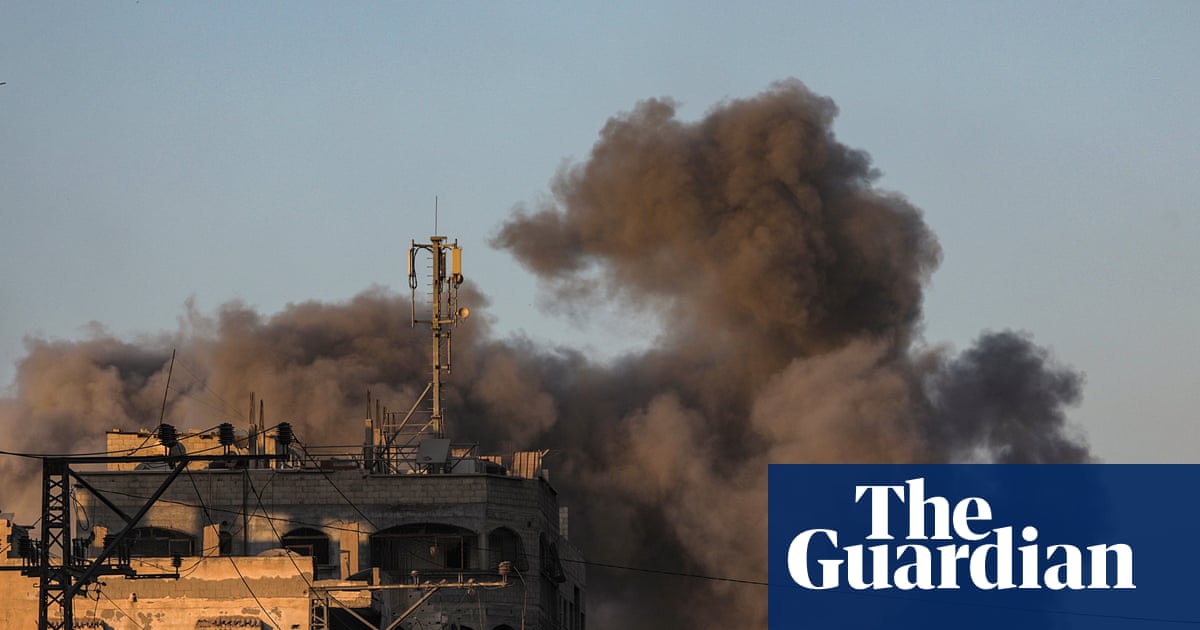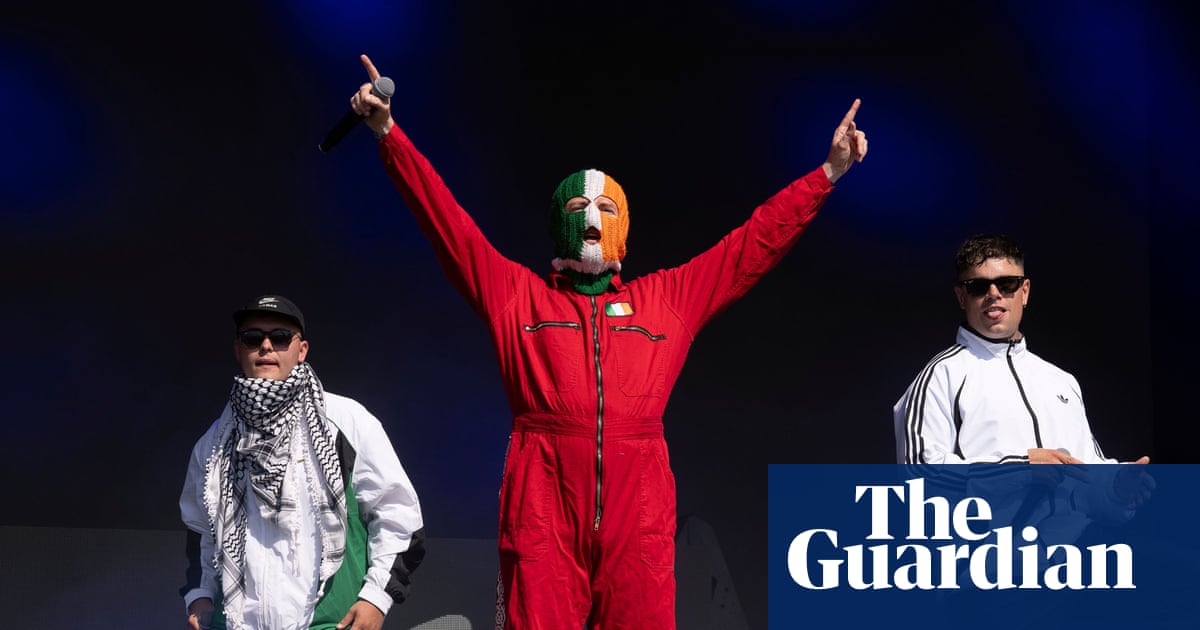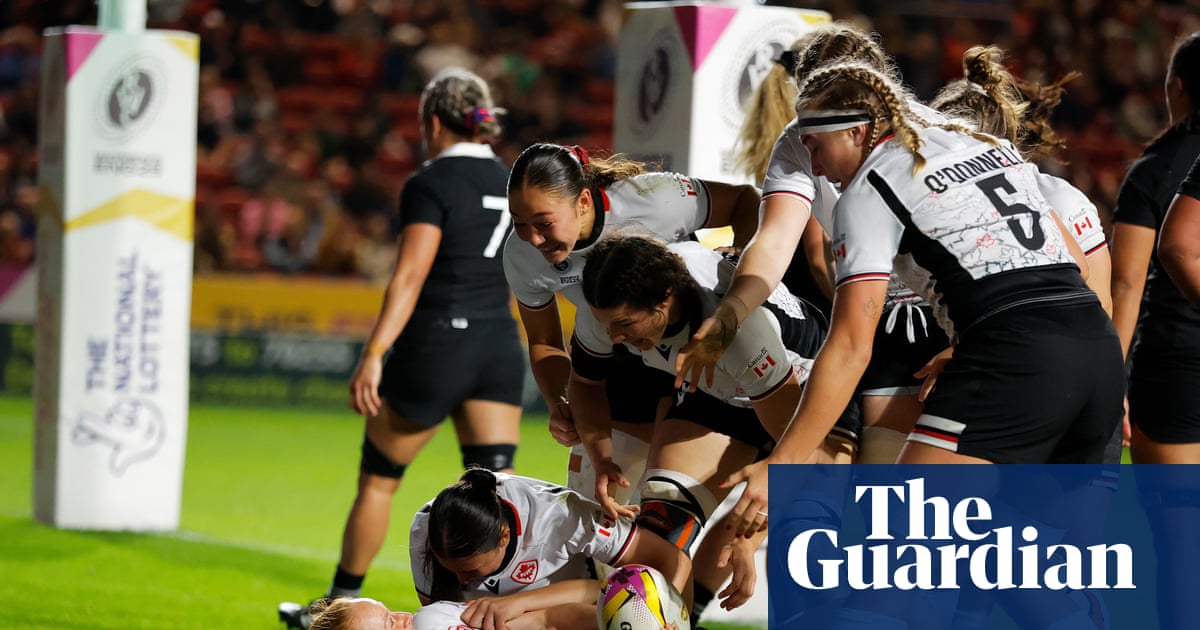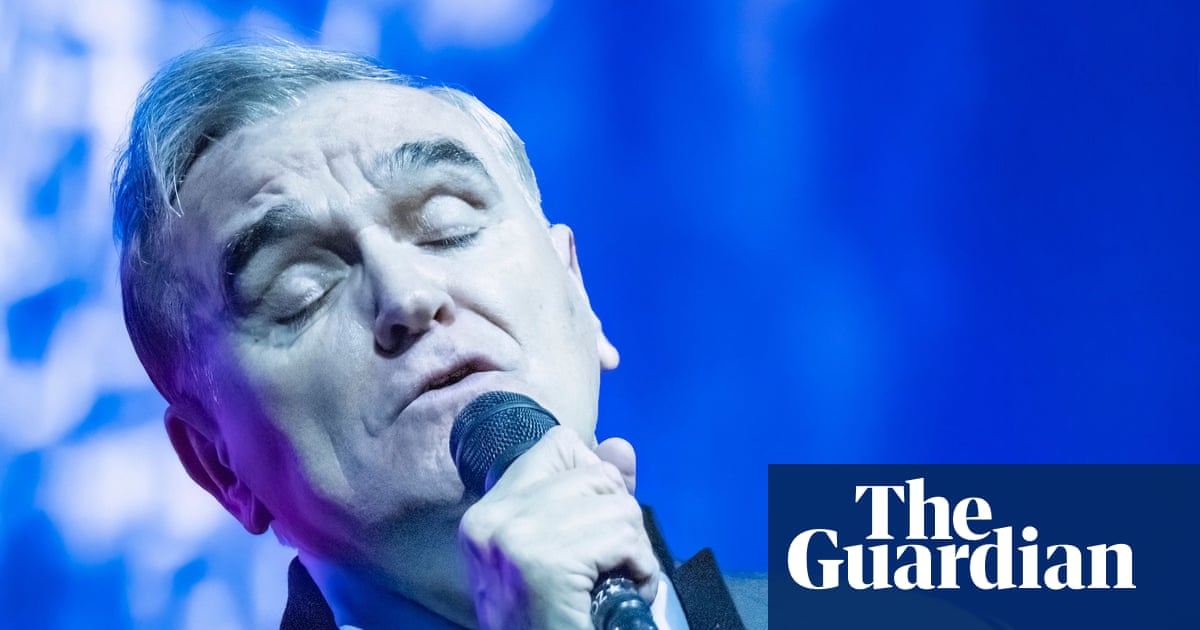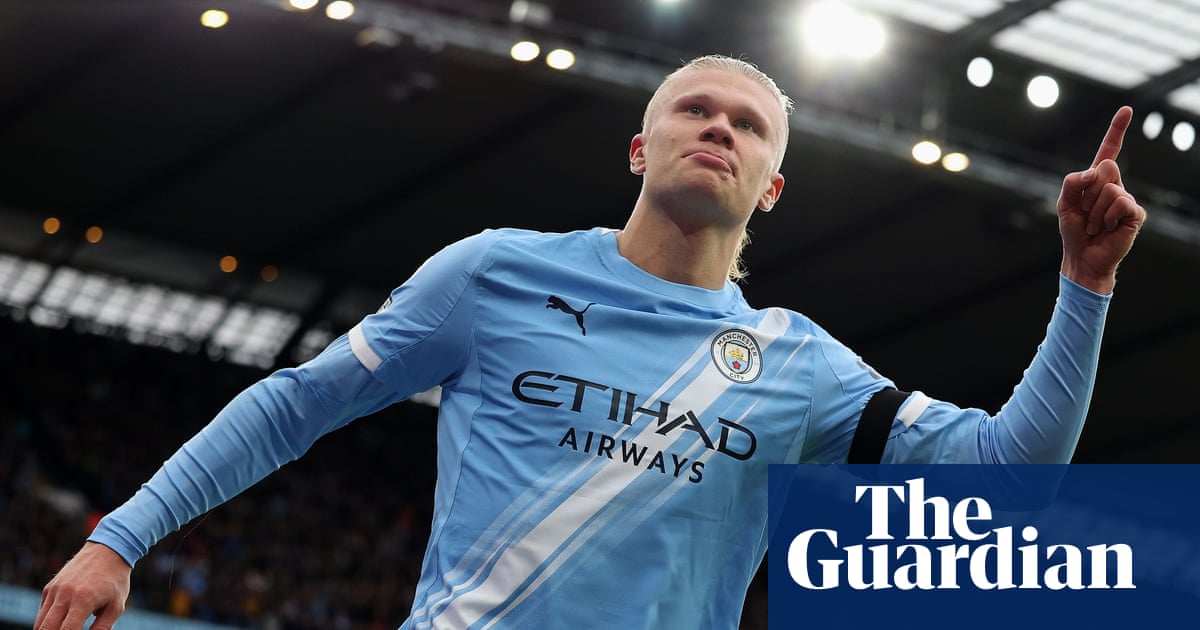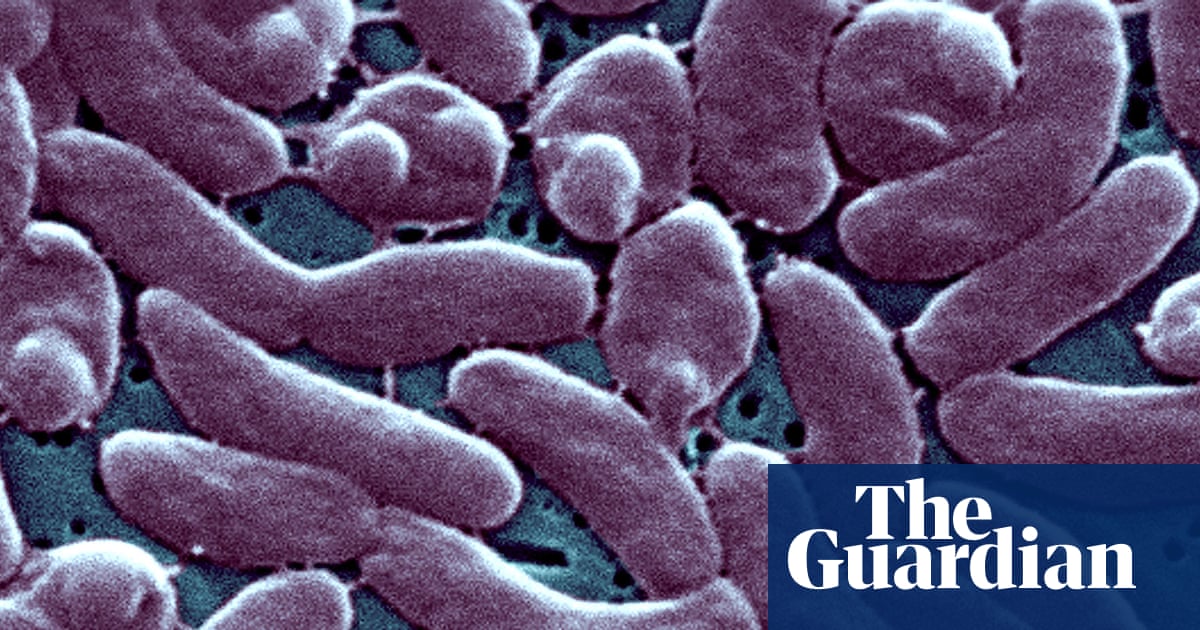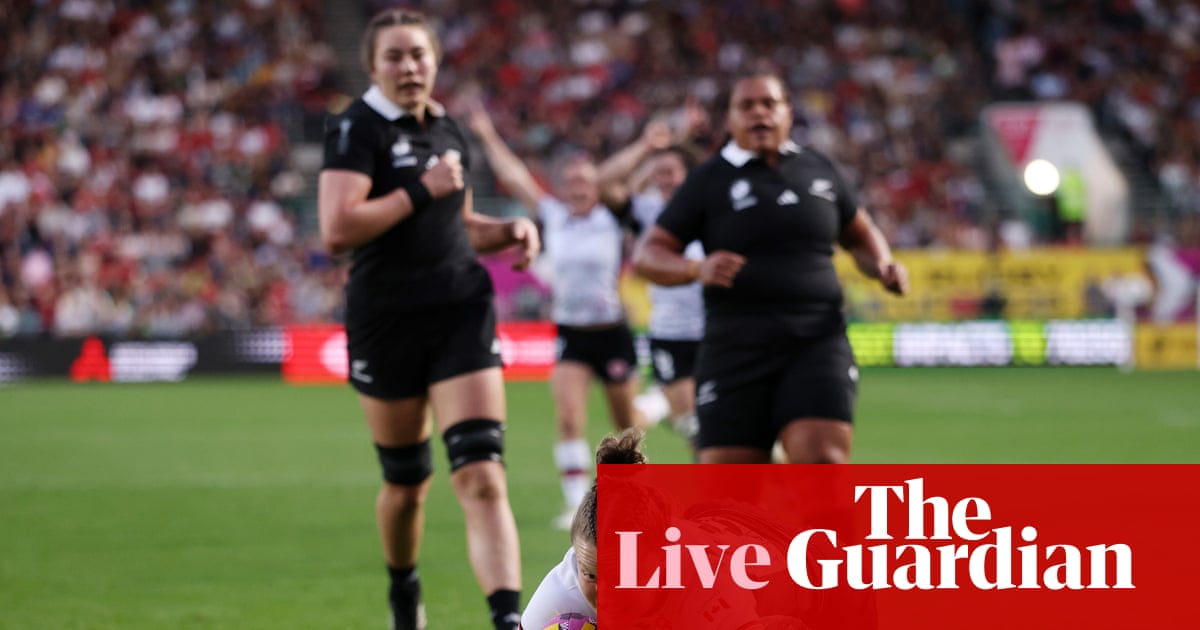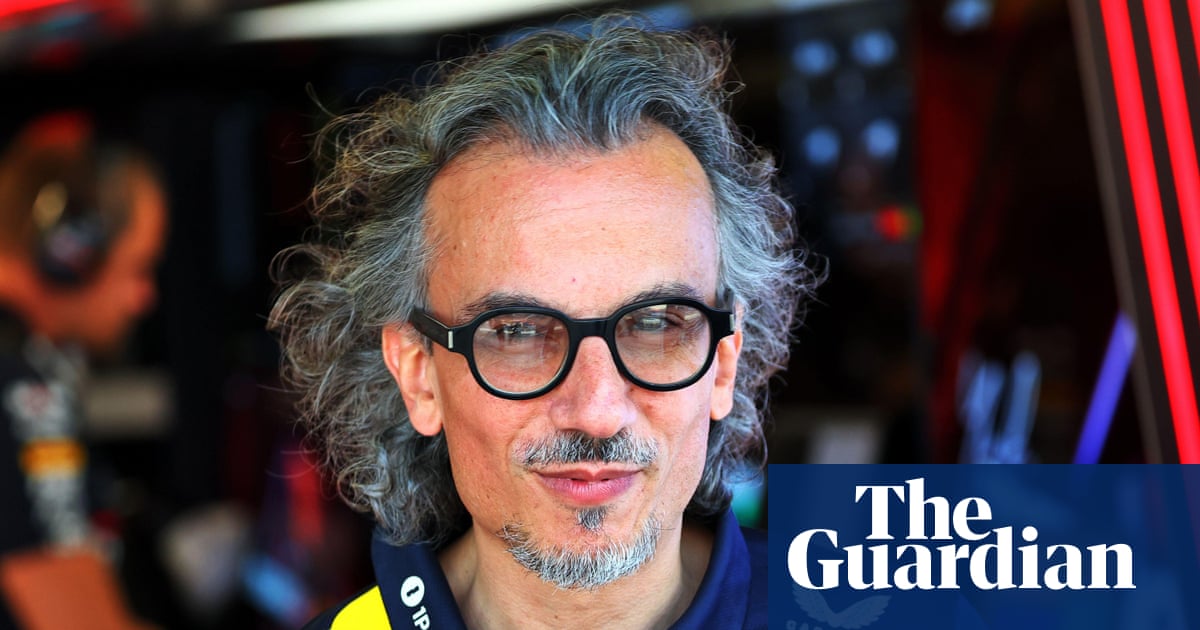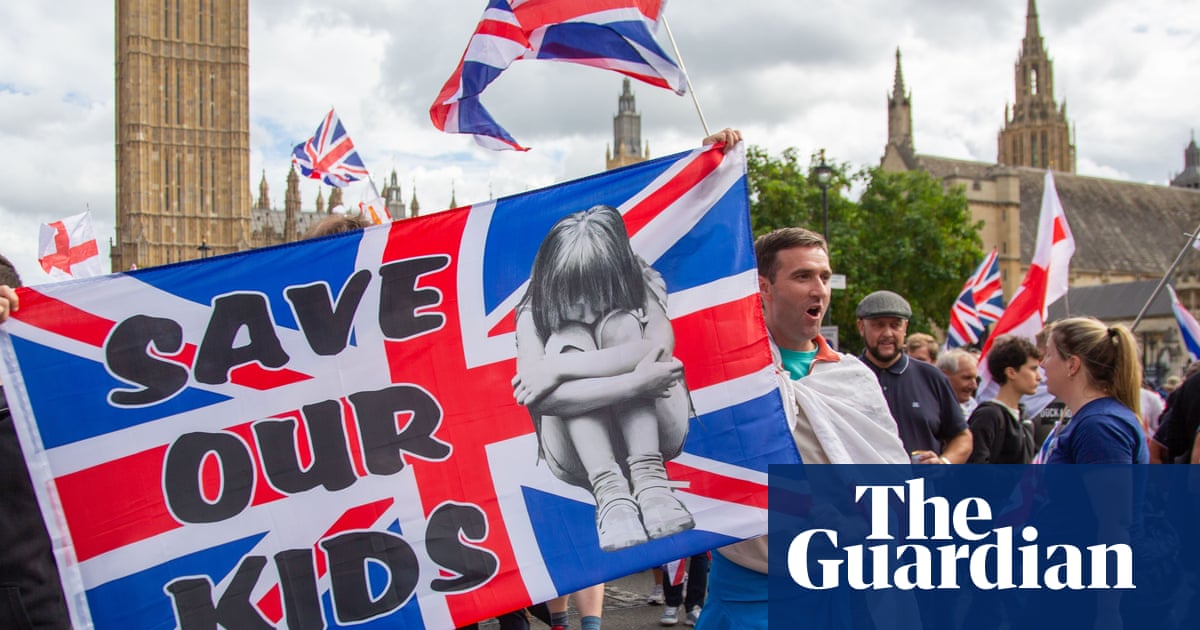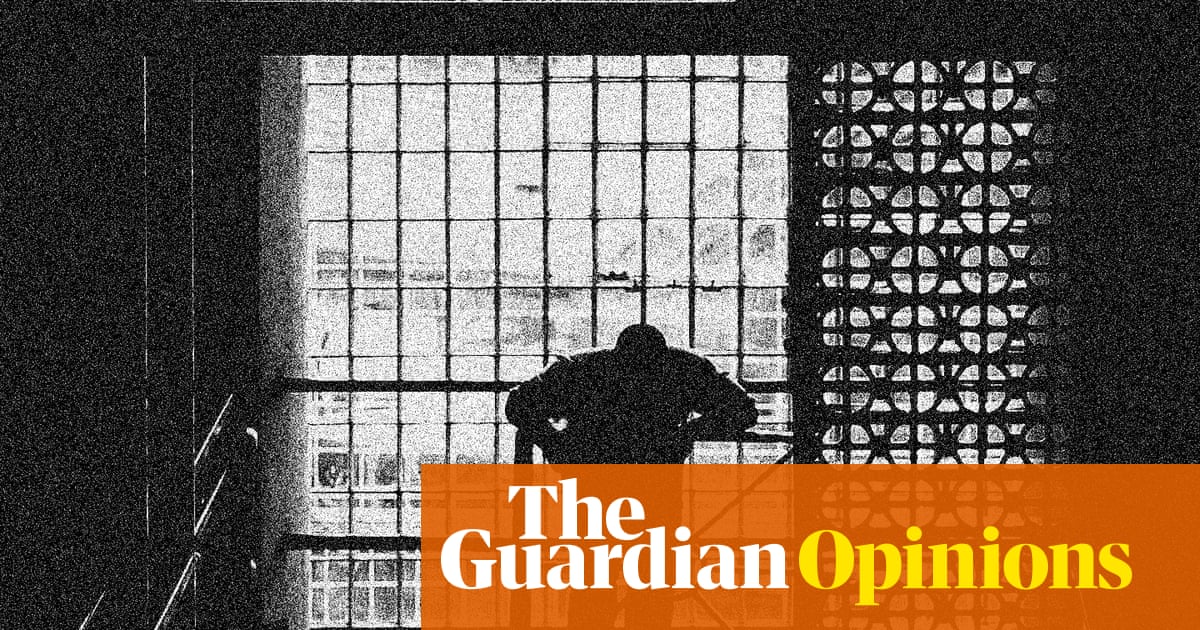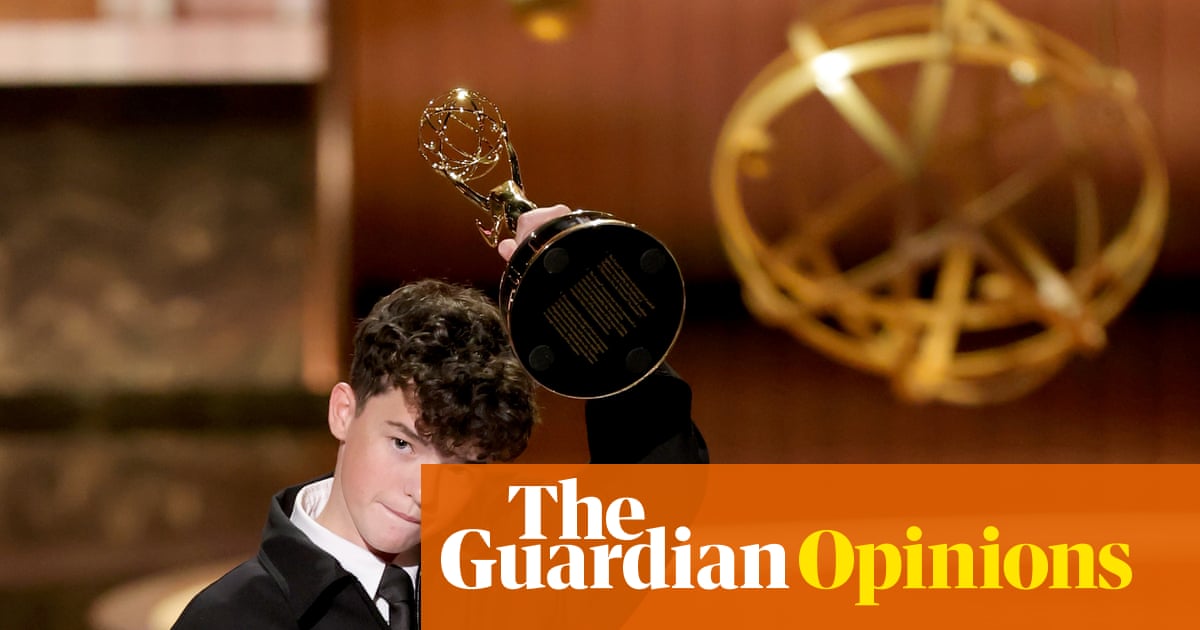Somewhere in the middle of all those people, of all the shouting and the crying, the emotion and the endless embraces, Santi Cazorla said that this, this, was the dream of his life. It was the dream of all their lives. At 11.43pm on 21 June 2025, the man who was twice a European champion with the greatest generation Spain has ever seen, who has won at Wembley, the Camp Nou and the Santiago Bernabéu, was crouched at the side of the pitch at the Carlos Tartiere ready for one last run. And when the final whistle went – on this game and an entire era – he set off, 40 years old and a kid again leading them all on to the pitch and into primera.
From the touchline they followed, let loose at last. From everywhere else they did too, the stands where 29,624 fans had been through it again emptying on to the pitch. A quarter of a century later, Real Oviedo had returned to the first division. “It’s been many years in the mud,” Cazorla said: they had disappeared down to the second, third and fourth tier, twice they had almost disappeared entirely; here, against Mirandés in the playoff final second leg, the match he called “the biggest of my career”, they had conceded early, two goals down on aggregate, and were taken into extra time, tension tearing at them, even as they knew it was never going to be easy, but now they had actually done it; now they were back. In their centenary year.

Cazorla was born in Fonciello, population barely 100 in the parish of Lugo de Llanera, 10 minutes outside Oviedo. Like his father, Jose Manuel, an ambulance driver who passed away in 2007, Cazorla was an Oviedo fan. He was tiny but there was something special about him: so special that when he and his mates Robi Toral and Piero Manso, ballboys and youth teamers, kicked about on the pitch at half-time people would watch, even if he likes to say his older brother Nando was better. He joined Oviedo at eight, saw them relegated at 16 and was forced to leave at 18, having never played a first-team game. When he finally did, it was in the second division, 20 years later – and that was better than it had been, if still not their place.
Oviedo had been relegated at Mallorca in 2001. In 2003 they were relegated two divisions at once, all the way down to tercera, a fourth tier made up of 17 divisions and almost 350 teams, in tiny grounds rarely much better than park pitches. Mud is literal, not just a metaphor. A financial crisis forced Cazorla out the door just when it might have opened. In 2005, they had been promoted to Segunda B, where 80 teams are spread across four regionalised divisions. And in 2015, they were promoted to the second division, but it had been almost a decade without even making the playoffs for the top flight.
Cazorla had come to take them out of there, and while you wouldn’t know it, while it was what he wanted, it weighed. He also came on the minimum wage, no bonuses. “I would play for free but you’re not allowed,” he said. He made only one demand: that 10% of sales of the Cazorla No 8 shirts that are everywhere now go directly to the club’s academy. Kids like him – like Juan Mata and Michu – should never be forced to go again.
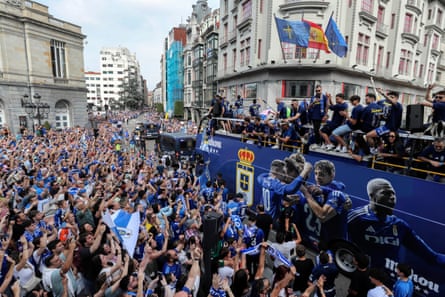
He had been through an injury that kept him out of football for 636 days. He had been under the knife 12 times. Ten centimetres had been taken from his Achilles, an infection eating it up. His bone had gone as soft as plasticine. The tattooed skin on his arm had been cut in half and grafted on his heel, his daughter’s name split in two. It was, Arsène Wenger said, the worst injury he had ever seen. Doctors had told him to settle for being able to walk round the garden. It was a miracle that he played again at all, and that return was five years earlier. And now he was 38.
In his first season Oviedo made it to the playoff final, where they were defeated by Espanyol. That, everyone assumed, was that. But he wasn’t going to leave this way. This year a Cazorla free-kick against Almería took them to the playoff final. He missed the first leg in Miranda, watching frustrated from a glass fronted press cabin with a knock on his knee as Oviedo lost 1-0. Against Mirandés in the second leg on Saturday night, when Mirandés took the lead again, he took control. When Oviedo got a penalty just before half-time, he took the ball, kissed it and scored, the place going wild.
Ilyas Chaira made it 2-1, taking the game into extra time. Then, with Cazorla withdrawn, everything given, Francisco Portillo scored a superb goal that made it 3-1, 3-2 on aggregate. There was magic there too: Portillo has now won promotion from the second division to the first five times. Asked how the experience was, Cazorla said “nervous”, but it had finally happened: 24 years later, Oviedo were back in the first division.

In the crowd Cazorla was lifted on the shoulders of Diego Cervero. The club’s top scorer when they were down in the mud, Cervero is now the doctor. When Oviedo were relegated to tercera, he had promised he would have to die to leave Oviedo without getting them back into professional football – defined here by the top two divisions – and he had been as good as his word; now he has helped taken them to the first.
At the other end of the pitch when Oviedo won promotion to the second division in 2015 was goalkeeper Esteban Suárez, who had dropped from the first division to the third tier to bring them back. “I had a friend who needed my help,” he said then; on Saturday he was at the Tartiere. So too was Michu, who had been in the team that won promotion from the fourth tier in 2005 and also returned, after another long fight with injury, something about Oviedo. Now here was Cazorla, taking the microphone and singing the club’s unofficial anthem by Melendi, an Oviedo-born musician who was in the club’s academy. It is a song of hope and hurt: “We can’t live like this, seeing our team suffer,” it runs, “volveremos”: we will return. Will? Have.
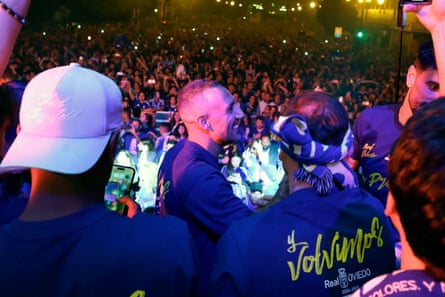
There were returns everywhere, meaning at every turn. The last time Oviedo played in primera, it was in Mallorca in 2001. That day, Veljko Paunovic was a player; now he is the coach. “There is closure,” he said on Saturday night. “All of those that appear in that photo wanted this redemption, for the cycle to close. Oviedo are back where they should have been all this time. But I think of those who didn’t make it, like [Radi] Antic [the coach] and [Peter] Dubovsky.” Dubovsky had died in June 2000, at 28. This was for them and for Armando Barbon, who died in 2003 aged just 19 – his statue stands in the corner of the stadium – and Pelayo Novo, who passed away at 32.
That day Esteban had played too, his own redemption made upon his return in 2015. At full time, the Mallorca coach, Luis Aragonés, who had been at Oviedo, tried to comfort him. “Whenever it rains, it clears up again,” he said. Yet no one expected it to take 24 years for the skies to clear and Aragones too passed before it did. A whole generation of Oviedo fans have never seen them in the first division, and this was not just promotion. By the time Cazorla climbed on the stage by Plaza América, the streets were packed. “Without you, Oviedo doesn’t exist,” he told them.
It wan’t a throwaway line. This is his club; it is all of theirs. For a long time there might not have been a club for him to come back to at all. In 2003, they were relegated twice in one summer: once on the pitch; the other off it, punished for their financial crisis, slipping into administration, after players denounced the club for not paying their wages. If there is an image of how bad it was, perhaps it is the coach setting up his office in the toilet, table literally alongside the urinal, because it was one of the few places there was natural light, after the electricity had been cut off.
The local council tried to build a new club to take its place. They haven’t forgotten: the very last chant on Saturday night, before the final whistle, was dedicated to the mayor who left them to die. The fans wouldn’t, fighting back, rebuilding everything under the presidency of Manuel Lafuente, literally all hands on deck. Supporters did everything: they swept and cleaned and fixed and turned up in numbers that the grounds they visited couldn’t always hold. They marched and protested. A team was built from scratch too, from those left in the academy. On Saturday the pregame tifo said it all: “Proud of never abandoning.”
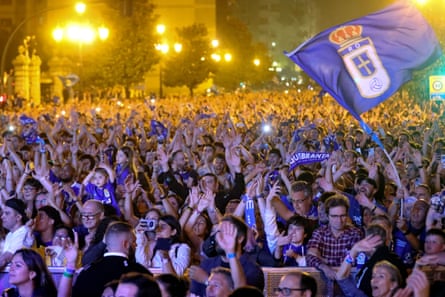
Never. Fans wouldn’t let them die then or again in 2012, when they were on the edge of the abyss once more, Interpol looking for their owner, a warrant out for his arrest on a charge of fraud. In the fight, something was gained, something changed; a resistance, an identity, a cause. A shared issue, one last desperate throw of the dice, saved them that second time, new supporters joining old: 36,962 shareholders in 86 countries and thousands more in Oviedo, queues stretching round the stadium. Some of those were there on Saturday too: Ipswich and Portsmouth and Stoke fans who are Oviedo supporters too. One of those shareholders, among the biggest the club had, a symbol of the rescue, was wearing 8 on Saturday night.
He had waited a long time, they all had. He had made it so, they all had. “It’s mad, ridiculous really that the best moment of my life is this at 40,” he said, looking out over a crowd that filled Avenida Galicia as fairs as they eye could see. “I have been lucky to love great things; I have won titles, cups, but I have suckled on Oviedo since I was a kid, the feeling here is different. This is unique.”

 2 months ago
77
2 months ago
77
